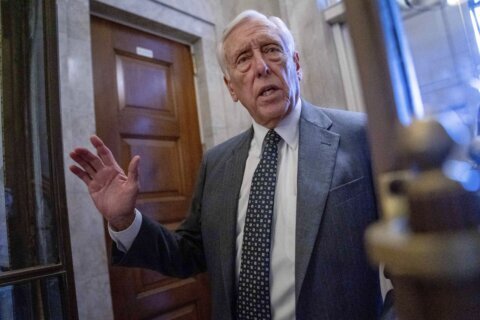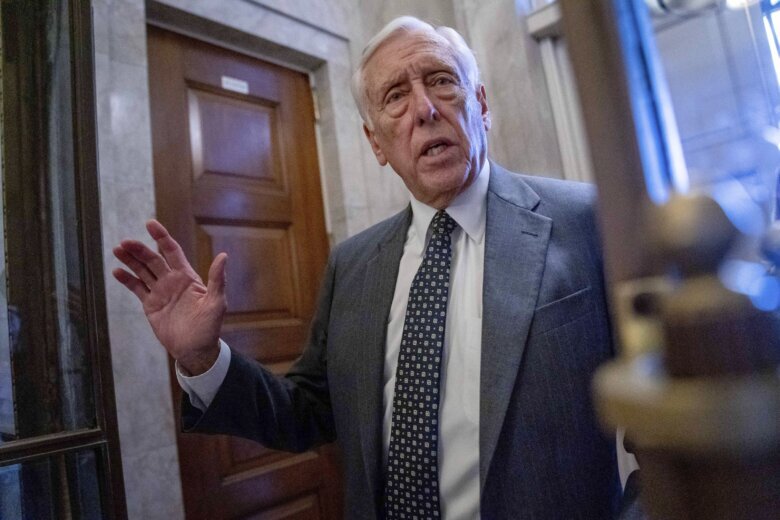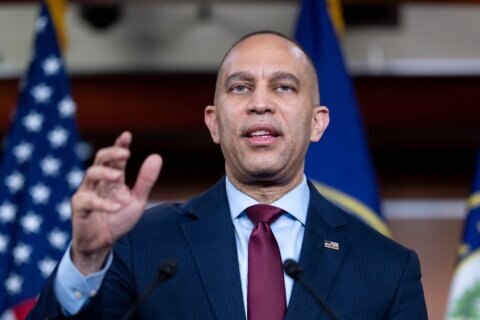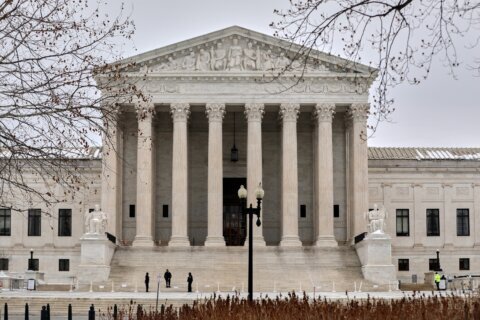
For all the latest developments in Congress, follow WTOP Capitol Hill correspondent Mitchell Miller at Today on the Hill.
Maryland Rep. Steny Hoyer, the former House Majority Leader, has seen a lot of government shutdowns during his long congressional career.
The Democratic lawmaker has a sense for when a shutdown showdown is coming, and he regrets there may be one looming in January, after Congress returns from the holidays.
“I think there’s more than a potential,” he said in a recent interview with WTOP. “I think it may be more likely than less likely that we would shut down the government.”
The first shutdown deadline is Jan. 19, the initial part of a so-called “laddered continuing resolution,” which will be followed by another deadline on Feb. 2.
Hoyer believes House Speaker Mike Johnson and Republicans have set the table for a shutdown, in part because there will be so little time to resolve major spending issues when the House returns on Jan. 9.
He pointed out that a return on that date means there’s effectively only about a half-dozen legislative days to deal with federal spending matters that have produced little agreement for nearly a year.
“We have been now 11 months, and the Republicans have been unable to come to an agreement,” he said. “Sadly, they have set up a process which makes it very, very difficult to reach consensus in such a short time and not shut down the government of the United States.”
Johnson has floated the idea of extending a continuing resolution through the end of the 2024 fiscal year, if lawmakers remain at odds over how to proceed.
But conservatives don’t like continuing resolutions and Democrats charge that such an approach would lead to extensive spending cuts.
Hoyer said he hopes that House and Senate appropriators will work during the holiday break to get some type of agreement, so that a shutdown can be avoided.
“There has to be work done now,” Hoyer said, noting that there’s currently no consensus on what a top-line spending figure should be.
Will choice of FBI headquarters in Maryland hold up?
On another topic, Hoyer said he remains confident that the General Services Administration’s choice of Greenbelt, Maryland, will hold up as the next site of the FBI headquarters.
Virginia’s congressional delegation is challenging the decision, arguing that Springfield should have been picked as the site.
The GSA inspector general is reviewing the decision to make sure it was properly done.
But Hoyer, who led the effort to bring the FBI headquarters to Maryland, said he’s not concerned.
“I think it’s a done deal,” he said, adding that he’s “very confident” the GSA investigation will show that the decision was transparent and properly made.
What does the future hold for Hoyer?
Hoyer has served in the House for more than four decades, holding several leadership positions.
This year, he has seen dozens of lawmakers announce plans to leave the House, either to retire, go to the private sector or seek another public office.
Hoyer said there’s no doubt that many lawmakers get frustrated with the legislative process. “Particularly if you’re not getting things done, they say, ‘Well, why I am I doing this?'”
And what about Hoyer, who is 84 and was first elected to the House in 1981? Is he going to run again next year, for a 22nd term?
“I’ve gotten a lot done, but there’s more to do,” he said. “I’m weighing that question carefully.”
Hoyer noted he got married earlier this year, more than 25 years after his wife Judy died of cancer.
He’s married to Elaine Kamarck, a senior fellow at the Brookings Institution. His face brightened as he talked about getting remarried, noting it will be six months as of Dec. 24.
“That’s really … given me new vigor and new energy and new perspective on life,” he said. “I still have stuff I want to get done.”









